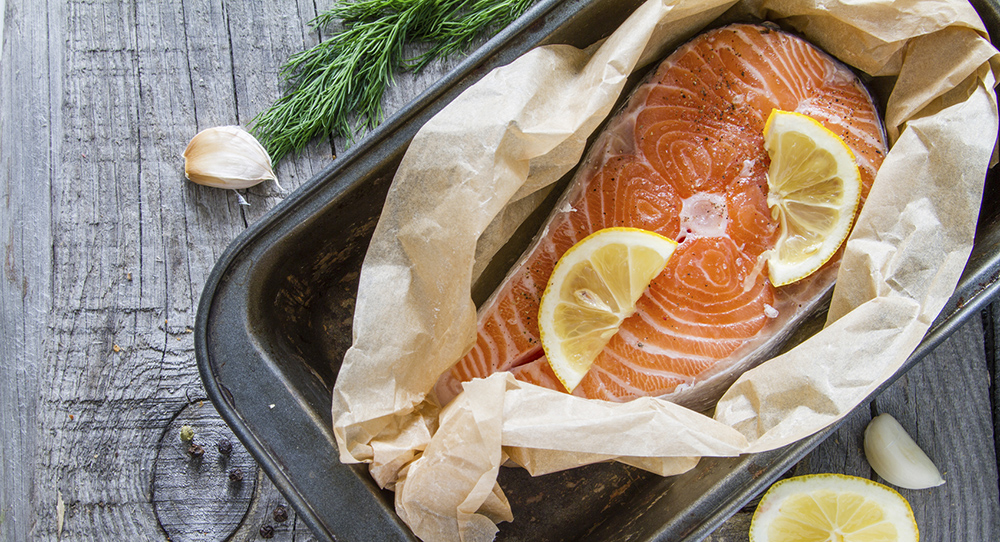The health benefits of fish
Nutritional therapist Eve Kalinik, dives into the numerous health benefits of this goodness-packed protein

Fish shouldn’t be just for Fridays. Depending on the type of fish, you’re getting lean protein, vitamins A, D, B12, B6 and magnesium, iron, selenium and iodine – nutrients we naturally fall short of in our daily diets.
We also get great ‘brain food’ from omega-3 essential fatty acids so prevalent in fish, one of which, DHA (docosahexaenoic acid), can help support sharper cognitive processes and, studies show, is linked to decreased risks of neurodegenerative and anxiety disorders, such as Alzheimer’s and depression. It is also essential for pre- and post-natal neurological development and as we age.
Compelling research into the other main fatty acid, EPA (eicosapentaenoic acid), also delivers cardiovascular benefits and promotes anti-inflammatory processes in the body. The best thing is to gain both EPA and DHA through naturally derived sources, and the highest omega-3 content is found in oily fish – think wild salmon, mackerel, trout, sardines, pilchards, Arctic char and anchovies.
White fish (such as Atlantic cod, haddock and mullet) might not boast the same omega content, but they do provide minerals such as magnesium, selenium and phosphorus, which have their cardiovascular and antioxidant benefits. And not forgetting our crustacean friends, such as prawns, crab, lobster and scallops, which also provide good sources of iron, B12 and, in the case of oysters, high levels of zinc, an important mineral for reproductive health – which is why it has been touted as an aphrodisiac.
When buying your fish, go for wild over farmed, as this will give you more omega-3 fatty acids and less of the harmful pollutants, such as PCBs and toxic metals, which are unfortunately part of our ecosystems. Limit tuna and swordfish to once a month, as these are more likely to be subject to mercury contamination. Also, check out msc.org to help you buy sustainable fish as much as possible.
Make a point of eating fish once or twice a week to get all their nutritional benefits. And if eating fish isn’t your thing, a good fish oil supplement can be very beneficial (always check with a health practitioner before taking).
For more from Eve, go to evekalinik.com.
Photograph: iStock








